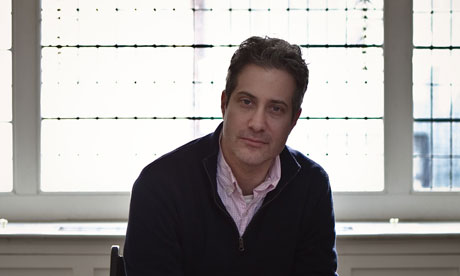
The average English word has just five letters. Words in the Inuit language, by contrast, have 14. "Short", a good old word, which expresses something vital about our language, also reflects a global appetite. In the age of brevity, English has become a default medium: functional, fashionable and well suited to the witty reductions of the keypad.
"Gr8", "u" and "lol" are now universal. It's said that even the French prefer "now" to "maintenant", while the Dutch write "2m" for "tomorrow".Traditionalists will scorn this text rendering of Hamlet's most famous line (2b? Ntb? = ?) but it reflects the zeitgeist. Sticklers for correct English like to strike an Anglo-Saxon attitude and deplore the consequences of the English language becoming the world's language. It is, they'll say, as if a three-rosette restaurant had been taken over by McDonald's.
There's not a lot they can do about it. Global English, whose ambitions are to make international connections and get its message across, shows every sign of morphing into what Hemingway once called "Babel's style". This, he ruefully conceded, "is even more concise than mine". On the streets of Cairo, Tripoli and Tunis, a new generation has turned to Globish to project its hopes for a free and democratic future. In the words of one protester's placard: "Yes We Can, Too".
Moving from the street to the library, our literature is responding to these new circumstances and discovering the joys of "short". Last week in the US the National Book Critics Circle gave its top non-fiction prize to Half a Life (Beautiful Books) by Darin Strauss, a shattering memoir of scarcely 200 pages, and a masterpiece of brevity – a study of chance and fate.
"Half my life ago, I killed a girl". You'll rarely get a better first line. What follows – Strauss's precise, honest and rigorous account of a fateful road accident and its harrowing aftermath – fulfils every hope aroused in the casual reader. What starts as an 18-year-old's carefree outing in his father's car leads to the death of Celine Zilke, a classmate, followed by a court case (this is America). Simultaneously, however, there is redemption: Strauss's ruthless self-examination and his slow and painful emergence as the author of three successful novels – Chang and Eng, The Real McCoy and More Than it Hurts You.
In putting his life back together, Strauss was fortunate. He wrote his way into psychological convalescence, and got a lot of help from the creative writing community. At one point he jokes that, in writing classes, "epiphany has a pretty high rate of occurrence". On the last page the hero will find himself "standing under just the right tree" and will pick the "right fruit". But life isn't like that, says Strauss, and there was never a single moment when he "began to feel better". Strangely, this honesty has its own satisfaction, especially when reduced to meet the needs of "short". As Robert Louis Stevenson says, "the only art is to omit".
Crystal, and with many facets, Half a Life is not a book George Orwell could have written, or would have wanted to write. But prose that fulfils Orwell's injunction to be "like a pane of glass" deserves celebration. It certainly gets an added lustre from brevity, but here's the puzzle. Half a Life has been widely serialised for its rendering of a suburban nightmare.Yet, despite its virtues of elegance, originality and graceful precision, as well as its impressive lack of whingeing and windbaggery, it has hardly been reviewed in Britain.
Prizes anyway make more of a difference than rave reviews. In the US, to achieve this highly significant American trophy, Half a Life overcame a strong shortlist, including Just Kids by Patti Smith and Hitch-22 by Christopher Hitchens.
I'm glad it was preferred by the judges. American books tend to the obese and the overripe. This memoir, which comes from the McSweeney's stable, advertises "Babel's style" on every page. It's a timely reminder that, from the Declaration of Independence to the best of Obama, American prose excels at saying a lot in a few words. Mercifully, for language sticklers, there's only one way to spell "short".
Hay's not the only one to break for the sun…
The literary festival world, so long a tranquil provincial pasture, has become a Darwinian jungle. Edinburgh is under dynamic new management, Bath is taking on Cheltenham and Hay. And Hay is going global – in Cartagena, the Maldives and even (it is said) in the US. You might think that in a global literary arena, Hay's impresario, Peter Florencecorrect, would find no competition. But you would be wrong. I hear that Geoffrey Dobbs, the enlightened and cultivated founder of Sri Lanka's Galle festival, has been approached to launch a similar event in Zanzibar. Dobbs has always joked that his festival is a "Mickey Mouse" affair, in other words "one of a kind". Perhaps Zanzibar will become a full-blown cartoon?
There's nothing new in giving away books
World Book Night was universally hailed as a triumph. Well, almost. Not everyone was overjoyed at the organisers' claims about the million-copy giveaway. David Campbell of Everyman books tells me that "between 1996 and 2006 I gave away 1.75 million books to every state secondary school in the UK through the Millennium Library Trust. £20m worth of books. I raised £9m to do this." Campbell also contrasts his list with the World Book Night roster. "The authors we gave to schools included Homer, Herodotus, Dante, Proust, Goethe, as well as Atwood, Bellow, Camus, Dahl and Waugh." Obviously his patronage didn't get through to all his clients. Margaret Atwood was one of several writers boosting World Book Night. Herodotus, sadly, was not available.

